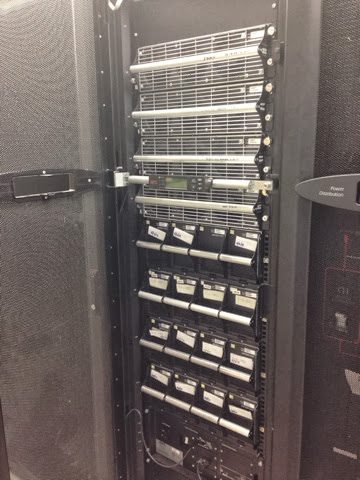My worst job ever and what I learned from it
My employer and I recently parted ways and I'm more relieved than anything. I'd made mistakes accepting that job and I'd made mistakes in how I handled the culture shock of that job, so I thought I'd take a bit to explain what I took away from the situation.
- Money isn't everything.
When I interviewed for this job, I was working at my local University in a very underpaid position. I'm not going to lie: I was pretty salty about the pay situation. Other than that, I greatly enjoyed my job at the university. I was excited to go to work on Monday morning, and when I went home at the end of the week, I believed I'd made a difference in the world, even if it was small and in an indirect way. I could see how the work that I did positively impacted my team, which positively impacted the department, which positively impacted the organization, which positively impacted the university experience for 15,000 student residents and 50,000 students at the university as a whole. I was proud to be a part of that. However, since I was salty about the low pay, I was only looking for more money. I found a gig in the private sector that nearly doubled my salary for what sounded like the same work I was doing.
In the interview, I saw several red flags. I should've ran, but when they made me the offer and I saw the salary, all of that went away. I won't go into too many details about the job, but believe me when I tell you that the culture was toxic, the environment was completely disorganized and the leadership was the most out of touch I've ever seen. Everyone has their price and everyone has different financial situations but if I could choose between a well-paying job I hated and a low-paying job I loved, I'd choose the low-paying job every time. Life is too short to hate what you do for a living and it's incredibly difficult to assign a dollar value to enjoying your job.
- Learning How NOT to do Things is important
In this environment, I learned a lot of how not to do things, which I could argue is quite important. In my environment at the university, I started my SysAdmin career and I was learning a lot of how to do things, some technical, some not. At this new job, I learned how NOT to do almost everything in an IT environment.
- People are more important than the tech
When I first got to my new job, I saw lots of really old IT products. A Backup Product that hasn't been supported by the vendor in nearly a decade, Novell Netware 6.5 clusters, VMware VirtualCenter v2.5, Compaq Proliant Servers (you know, before HP bought Compaq in the early 2000s).... At first, I thought the environment was bad because of all of the old technology. Over time, I realized that the tech can be updated, upgraded, downright replaced, or otherwise fixed much easier than the people and culture. The silos in this environment were strong, way too many cooks in the kitchen (so to speak), almost everyone was very business-as-usual, and the culture ran on fear. Whenever anything went wrong, there'd be a 20+ reply-all storm from team leads and managers essentially all racing to say "Not-it!" (I likened it to a professional game of "who stole the cookie from the cookie jar" but none of my colleagues had ever heard that children's song). At almost every issue I found with the culture, management either had a hand in creating it (whether unintentionally or intentionally) or downright caused it. Lots of really smart individuals with the people skills of a potato and the management skills to match. I'd decided that I wanted to become an IT Director or CIO/CTO before I started this job. This experience cemented my choice to pursue IT management as my career.
- Negativity is poisonous
This one, I'm partly to blame. I was negative at my job at the university and I was negative at this new job. I was vocal about the problems I saw and the awful management. I'm not saying that being positive will fix everything but complaining about things (particularly about work AT work) will almost always do more harm than good.
It'd be easy to say that I wish I'd never taken this job. Even though my experience was mostly a negative one at that company, I definitely learned some valuable lessons and I believe I'm a better IT Professional because of it. I'm all for jumping into the unknown and adapting to a new environment but I wish I'd have looked at the whole picture rather than just the money part of my compensation package. I wish I'd asked more probing questions in the interviews, I wish that I'd asked to meet the team and interview them a bit and I wish I'd asked to see their data center. I now have a theory that an IT team's physical organization is a direct reflection to their logical organization or lack-thereof. However, life has a tendency of giving you the test first and the lesson later.


Comments
Post a Comment